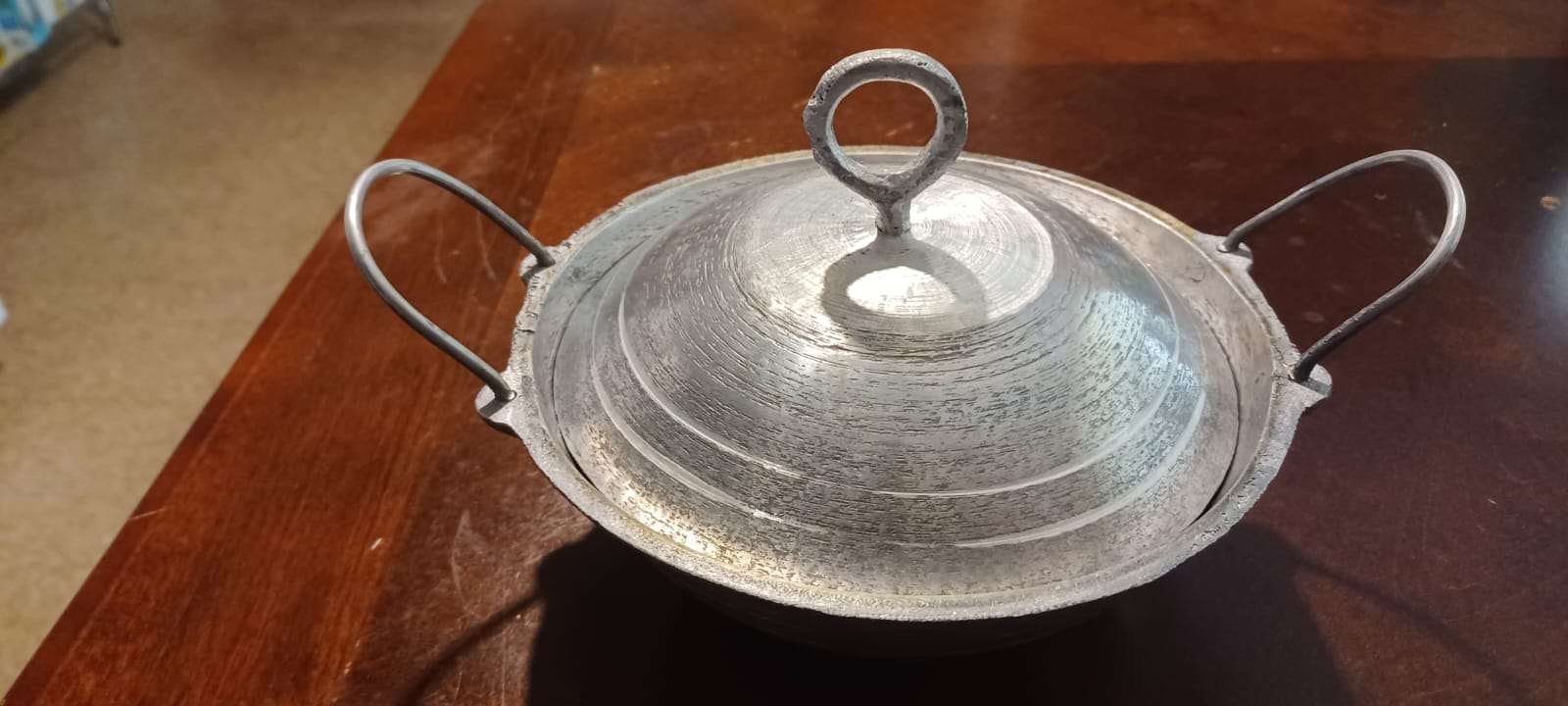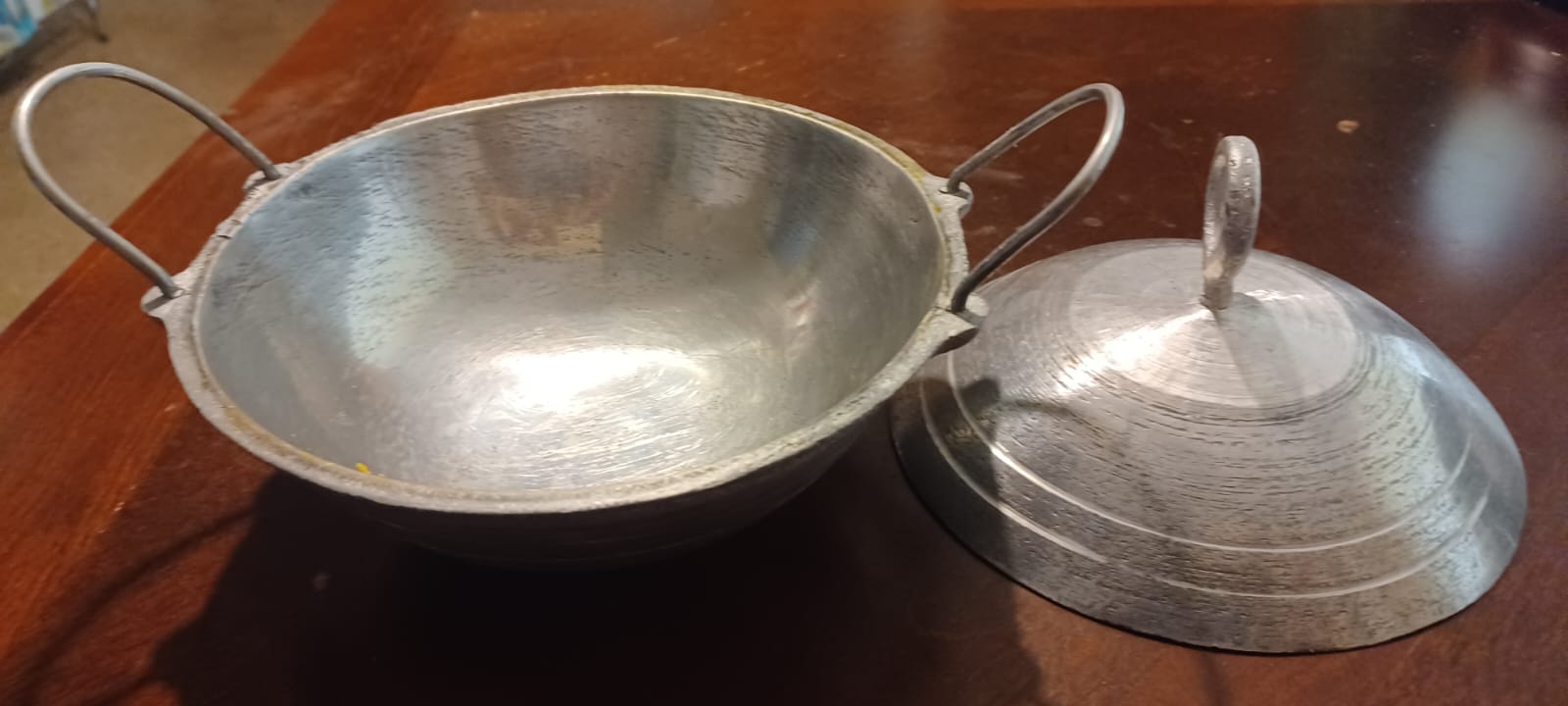அப்பசட்டி
Appachatti (hopper pan)
Content note: dilettantism, performative activism
A white man had grown a long beard that he was quite proud of, lovingly tending it every day. He was offered an old appuchatti with a portion of red rice kanji that would stick to his beard and spoil its appearance. However, he knew of its symbolic significance and knew he looked virtuous eating it, so he could not afford to waste it, either. He held the appuchatti at a distance to avoid spoiling his beard but ended up spilling it all on the ground while none of it entered his mouth.
This man is like what the sages called a half-baked aspirant. He is devoted to tending his physical body and keeping it beautiful and free from pain. Then a guru with physical and spiritual pain comes along and offers him wisdom. The aspirant thinks he can safely avail himself of it by keeping himself aloof, studying it at arm's length, and overlooking her expressions of pain. This desire to shield oneself from another's pain generates the conditions for the objectifying clinical gaze and the reluctance to practically engage with intergenerational trauma, ethnic cleansing, and torture unless they are objectified. He performatively partakes of her wisdom from a distance, barely imbibes any of it, and yet believes it is enough! So eager is he to maintain an outward appearance of moral righteousness while avoiding the pain and discomfort of true learning and advocacy, he does not even recognize that he does not benefit. Neither does he realize that his drive to ward off the guru's pain and trauma amplify both.
You engage in an anti-racist, anti-ableist, trauma-informed medicine and digital composition only when you have transcended this impulse.

